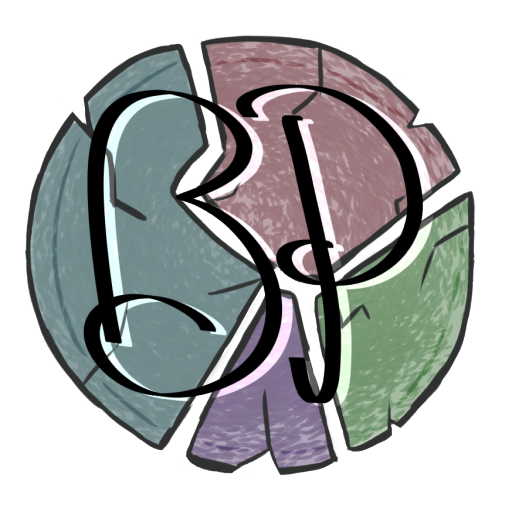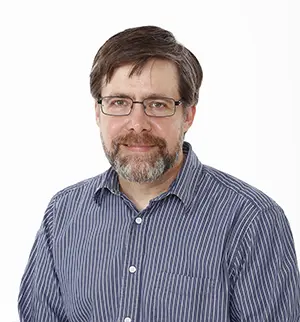Jackson Smith (JS): How did the idea for The Broken Plate come about? Why do you think it’s important for Ball State to offer undergraduates a practicum focused on editing and publishing? How does that impact the students, and the Ball State community as a whole?
Mark Neely (MN): Ball State had both a thriving Creative Writing Program and a lot of interest from students who wanted to learn more about editing and publishing. The Broken Plate seemed like a great way to give students hands-on experience as editors and also allow Ball State students to showcase their own creative work. One thing that distinguishes The Broken Plate from a lot of undergraduate-run literary magazines is that we accept submissions from all writers—I think this gives both the editors and the writers we publish a more meaningful experience.
JS: Is there either a prose, poem, or art piece from The Broken Plate that stood out to you that you remember to this day? Why? Further, is there an edition of The Broken Plate that resonates with you most? Why?
MN: We’ve published a lot of great work over the years. One of my favorite things is to see something a student wrote in one of my classes show up in the magazines, which has happened quite a few times (even though I had nothing to do with choosing it for the issue. One piece that has always resonated with me is the essay “Doughnuts” by former Ball State student Kimmi Beard (from the 2018 issue).
JS: In 2019, as the editors of River Teeth: A Journal of Narrative Nonfiction prepared for retirement, they asked if you and Professor Jill Christman would step in as the new editors of the magazine. How did working with The Broken Plate influence your current work with River Teeth as an editor?
MN: Working on The Broken Plate taught me a lot about the day-to-day operations of running a magazine, but maybe most importantly it taught me how to find work I loved and argue with my fellow editors. I also learned a lot about layout and design, mostly from my students, which I use often in my work on River Teeth.
JS: You are also a published poet, and your fourth book of poems, Late Stage, which won the 2024 Jacar Press contest, was just recently published. How does your work as an editor impact your writing? What is the relationship between editing and creative writing for you?
MN: My first editorial job was as poetry editor for Black Warrior Review, which was run by students at the University of Alabama, where I got my MFA. Right away I noticed that the conversations we were having in editorial meetings were quite different from the ones we had in writing workshops. Both were valuable, but I think without the work I do on literary magazines, my writing and revision process would be quite different. One thing I’ve learned is how to know when something is ready to send out. I used to send out work way too early, but reading lots of unfinished-seeming manuscripts from other writers has at least partially cured me of that.
JS: Creating The Broken Plate and seeing it grow over the last 20 years; what changes have stood out to you? And what new horizons or new expectations do you see The Broken Plate reaching, if any?
MN: One of the things I loved about working on The Broken Plate was letting students take the lead in developing things that were important to them. I think we’ve become a lot more professional over the years thanks to their introduction of various new initiatives—including the website, social media platforms, interviews, art, etc.

